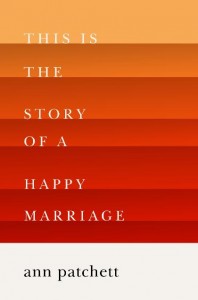The Art of Simplicity – tips for writers from graphic designer Chip Kidd

I’ve been reading Chip Kidd’s Go: A Kidd’s Guide to Graphic Design. Although the book was written for a younger audience, it’s a gorgeous, superbly readable crash course in the history and principles of graphic design.
One of the lessons that writers can take to heart is Kidd’s explanation of simplicity vs. complexity. “Simple, direct visual elements will get the attention of your viewer in a different way than complex images that the writer will have to decode,” Kidd writes. Complexity, on the other hand, “has to be very carefully managed or it becomes chaos.”
The best writing strikes a balance between simplicity and complexity. As a writer and as a reader, I am drawn to very direct sentences that are simple to navigate. I’m not talking about sentences that are very short, or sentences in which vocabulary is limited to the lowest common denominator. I’m talking about sentences that are clear and meaningful. The writer’s goal, on a sentence by sentence level, should be clarity. Overblown descriptions, adjective pile-ups, and self-conscious phrasing hinder clarity. Any sentence that screams “look at me!” fails the reader. The writer’s job is to communicate a story. The sentences should be clean enough to communicate that story effectively.
For me, complexity comes into the picture in the construction of the plot and the pattern of the novel. Kidd uses a wonderful spirograph illustration to demonstrate the principle of complexity. When you write a novel, there are many elements at play, including character, theme, plot, setting, and point of view. All of these elements must somehow find their way into an elegant design. The elements intersect throughout the novel with various degrees of symmetry, layered in a way that makes each element visible but none overpowering.
Michelle Richmond is the New York Times bestselling author of four novels and two award-winning story collections. Ger her latest novel, Golden State.
Kidd’s book is a wonderful experience for anyone interested in graphic design or the visual arts. But it is also a powerful reminder that, as writers, we can find inspiration anywhere and everywhere.


 I love the built-in shelves and lighting, and the window that (perhaps cruelly) allows kids to gaze out on all the fun other members of the household are having while the student is locked in his homework prison.
I love the built-in shelves and lighting, and the window that (perhaps cruelly) allows kids to gaze out on all the fun other members of the household are having while the student is locked in his homework prison.


